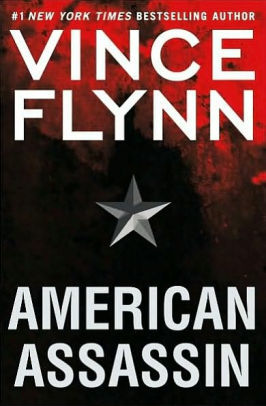
American Assassin
Chapter 60
by Flynn, VinceThis chapter, ‘Chapter 60’, is rich in content and well worth a careful read.
FAQs
1. What precautions does Rapp take when approaching the safe house, and why are these measures important for his survival?
Answer:
Rapp follows strict surveillance protocols when approaching the safe house, including conducting a normal drive-by without obvious scrutiny, circling back to check surrounding blocks, and entering from the rear as instructed. These measures, drilled into him during training, are designed to detect potential surveillance or ambushes. By avoiding predictable patterns and thoroughly assessing the environment, Rapp minimizes the risk of walking into a trap. The chapter emphasizes that such precautions—though tedious when exhausted—are critical for operatives in hostile territories, as complacency can be fatal (e.g., Rapp initially forgets the rear-entry rule but corrects himself).2. Analyze the psychological and tactical significance of the “hood” described in Hurley’s interrogation scene. How does it serve his captors’ goals?
Answer:
The hood forced upon Hurley is a psychological weapon saturated with odors of fear (sweat, blood, vomit) to break his resistance. By sensory deprivation and sensory overload simultaneously, it creates disorientation and dread, priming him for interrogation. The captors leverage this to establish dominance—the foul smells symbolize previous prisoners’ suffering,暗示 Hurley could share their fate. Hurley’s awareness of this tactic (noting its design to make him “pliable”) shows his experience, but the visceral impact still undermines his control. This method reflects real-world interrogation strategies where discomfort and humiliation erode a detainee’s resolve.3. Compare Rapp’s and Hurley’s situations in this chapter. How do their respective challenges highlight different aspects of field operatives’ risks?
Answer:
Rapp faces the silent threat of operational security: fatigue-induced mistakes (e.g., nearly entering the safe house incorrectly) and unknown threats in a foreign environment. His challenges emphasize vigilance and procedural discipline. In contrast, Hurley confronts active physical and psychological warfare—beatings, kidnapping, and interrogation—highlighting the peril of compromise and the brutality of capture. Together, their parallel narratives illustrate the spectrum of dangers: Rapp’s scenario underscores preventive tradecraft, while Hurley’s embodies crisis management. Both stress the isolation of operatives; Rapp’s solitary exhaustion mirrors Hurley’s solitary defiance.4. Why does Hurley invoke “Levon Petrosian’s” name during his arrest, and what does his subsequent defiance reveal about his character?
Answer:
Hurley name-drops Petrosian as a calculated gambit to exploit local power dynamics—likely Petrosian’s influence with corrupt officials. This tactic temporarily halts his beating, showing Hurley’s quick thinking under duress. However, his later insults (“Fuck you”) and physical retaliation (head-butting) reveal his ingrained defiance and refusal to submit, even when outnumbered. His taunts about corruption and threats (“price on your head”) demonstrate a blend of strategic bluffing and genuine ruthlessness. Hurley’s behavior reflects a veteran operative’s mindset: leveraging alliances when useful but resisting psychological manipulation at all costs.5. How does the chapter portray the theme of operational anonymity, particularly through Rapp’s thoughts about the “mystery man” supplying weapons?
Answer:
Rapp’s musings about the unseen logistician who drops off weapons (the “same suitcase” from Istanbul) underscore the compartmentalized nature of spy networks. The line “they were on a need-to-know basis” reinforces how anonymity protects operations—even Rapp, a key asset, is kept in the dark. This mirrors Hurley’s isolation; both men operate in silos, unaware of broader mechanisms. The theme highlights the impersonal machinery of espionage: operatives rely on strangers’ work, emphasizing trust in systems over individuals. Rapp’s curiosity humanizes him but also foreshadows his growing understanding of the profession’s solitary nature.
Quotes
1. “Rapp paid him, smiled, slipped the little car back into gear, and drove away. It took him another twenty minutes to find the safe house. Based on the stories he’d heard from Hurley, he was surprised that during that time he didn’t run into any more armed men.”
This quote highlights Rapp’s cautious professionalism despite exhaustion, showing how his training overrides personal fatigue. It introduces the tension between operational discipline and human vulnerability that runs through the chapter.
2. “He shoved the pistol under the pillow and wondered who the person was who went from city to city dropping off their tools of the trade. Would he ever get the chance to meet this mystery man or woman? Probably not. As Hurley liked to say, they were on a need-to-know basis and there wasn’t a lot they needed to know.”
This passage reveals the isolating nature of intelligence work and the deliberate opacity of operational protocols. Rapp’s moment of curiosity humanizes him while underscoring the compartmentalized reality of his profession.
3. “The bag they’d placed over his head offered a mix of putrid smells—feces, vomit, snot, and blood all mixed together with the sweat of all the men who had worn it before him. And it wasn’t the perspiration of exertion, it was the ripe sweat of fear, an all-out assault on his olfactory system, designed to make him pliable to whoever it was who would walk through the door and begin asking questions.”
This visceral description of Hurley’s interrogation setup demonstrates the psychological warfare tactics used against operatives. The sensory details powerfully convey the dehumanizing process of breaking a prisoner’s resistance.
4. “Hurley doubled over as the man next to him delivered a stinging blow with whatever it was that he was holding. Hurley recovered and said, ‘I can’t wait to tell Petrosian about this… the first thing I’m going to do is take that stick of yours and shove it up your ass.’”
This exchange showcases Hurley’s defiant character under duress. His crude bravado while being tortured reveals both his toughness and his strategic use of connections (Petrosian) as leverage in dangerous situations.
5. “It occurred to him that that might be the best possible outcome. Fall asleep and die from carbon monoxide poisoning. He could skip all of the degradation and take his secrets with him.”
This dark internal monologue reveals the existential stakes of intelligence work. Hurley’s momentary preference for death over interrogation underscores both the value of his knowledge and the brutal realities of operational failure.
